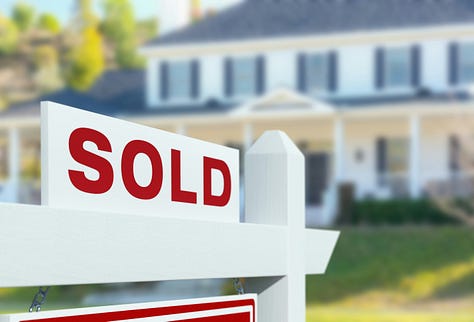🎧 Is Household Saving Bad for the Economy?
What’s good for us versus what’s good for the economy



I recently asked a group of writers, “Why do we save?” Here are some of their responses:
So, we can pay big honking dental bills when they come up and fix the catalytic converter on my car so I can idle it in winter without gassing myself
Protecting our inner life from the outside storms
For paying high medical bills
But one talked about how her family pulled itself out of debt. This is called negative savings. They were able to save to help their kids with school and assistance and to have money for retirement.
Some of the group members were thinking short term—having funds to pay for emergencies. The last one was thinking long term—having money for later in life.
In this post we’ll look at how and why households save.
Household saving doesn’t add to the economy directly
Household spending is good for the economy. As spending (Consumption) rises, so does GDP.
As spending rises, producers make more of what we need and want. Then they hire more workers to do so.
But individual households need to save money. When we save money, by putting it aside or paying down debt, then GDP loses that amount of consumer spending.
That’s not necessarily a bad thing.
Why do we save?
We need funds for emergencies, for family vacations, or for the down payment on a new home.
For example, my husband and I set aside funds to pay the down payment for a new home. In 2021, that meant 20 percent of the price of the house.
(Keep this in mind when you’re house hunting.)
We also needed funds for closing costs, taxes, and all the other fees that come with buying a new home.
Some households put money into savings for college for themselves or their kids.
And many of us save for retirement.
As you save money, you build wealth. Traditionally, Americans build wealth in three ways:
1. By putting money into a savings account, money market funds, and short-term certificates of deposit
2. By putting money into equities (stocks) and bonds
3. By building equity in our homes
When I was teaching I added one more item : (4) the money we put into our education beyond K-12.
In earlier posts, I’ve talked about how spending time going to college or learning a skill or trade improves your stock of human capital.
Why we build wealth
We also build wealth to take care of us when we aren’t working.
According to the Centers for Disease Control (CDC), one in four Americans can expect to be disabled, permanently or in the short run, during their lives. As we get older, accident or illness leaving us disabled is more likely.
If you’ve got adequate savings in easily accessible funds (M2 money), then you can protect yourself against a sudden drop in income from illness or injury.
Long-term disability insurance is another option for full-time employees.
Retirement Savings
Most of us expect to retire. We know that our Social Security income won’t be enough. This is where long-term savings comes in.
For longer-term savings, often called investing in the finance industry, most Americans put their money into the stock market and their houses.
IRAs, Roth IRAs, and 401(k)s are popular ways to save for retirement.
They have the advantage of reducing your current taxes. You’ll likely be in a lower tax bracket after retirement when you get that income.
If you’re lucky, your company matches part of your retirement savings.
As an employee of the state of Georgia, I was required to save five (5) percent of my salary. I didn’t complain because the matching plan was very generous.
In contrast, my husband’s company only started partial matching the year before he retired. Admittedly, he always worked for high-tech start-ups.
In the next post, we’ll finish looking into savings. We’ll also discuss why savings can be good for an economy.
Thank you for taking the time to read this,
Nikki





I think we can do both: support our household savings and do good for the economy. For me, living in a fairly small town, it's also important to support our local businesses. I have some credit card debt so a lot of people would say, don't spend. I'm careful with my spending but I do enjoy shopping (definitely not a shopaholic). I received a message this weekend that a fairly new local store I like was having a big sale. I bought a few things that probably weren't mandatory but 1. It supported the store (many stores here have closed), I got good discounts on things that, while we didn't absolutely need right now, we will down the track. 3. I had fun and I will enjoy the things I've bought.
Great article. I won’t choose to read topics like this normally but your title attracted me.
If you’re interested I can add my reason: I save because I want to be independent and break free from the establishment.
I do t appreciate the economic model that givens the world today which is based on debt and encourage people to get into debt. Because that bent is not just financial. People become enslaves to systems and eventually can’t get access to what they need - including basics such as food, shelter and medicine.
If I can live an independent life than I can help create a different economy, or at least support a momentum, an economy that I believe would benefit people rather than singular rich corporates and single individuals